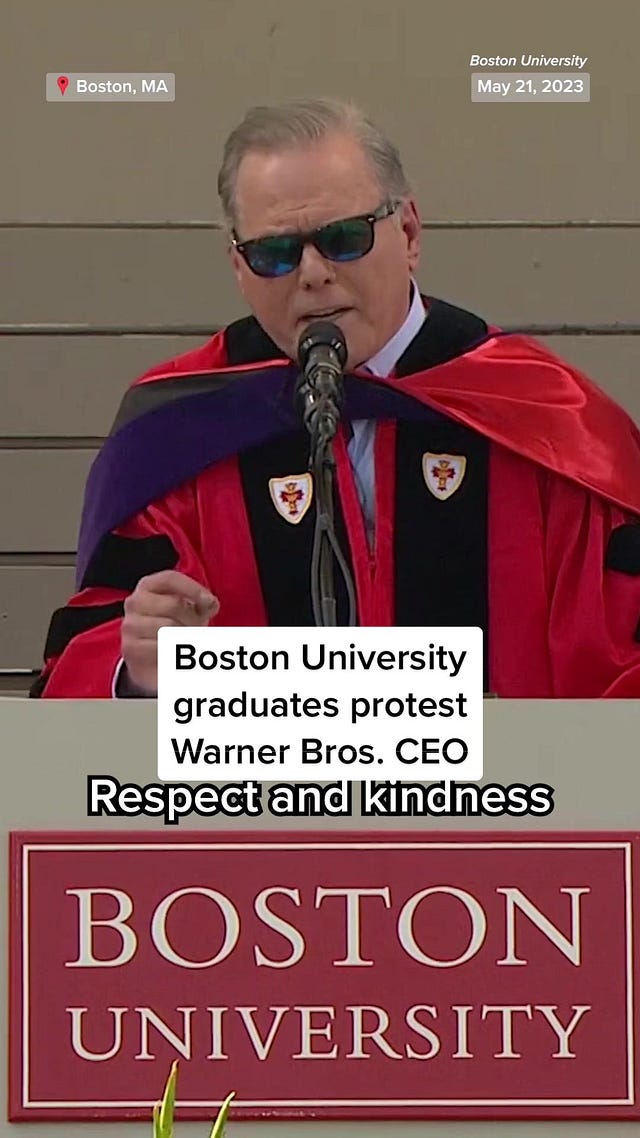Humanity vs. AI: Who will win out?
The WGA strike crystalizes the struggle and what is at stake
We haven’t posted in a while but are getting back to regular articles. Thanks for previously subscribing. And we eagerly look forward to connecting with new subscribers.
I’ve just spent four weeks, I’ve emersed myself in “Deadline Strike Talk with Billy Ray and Todd Garner” and numerous articles about the WGA strike. The consensus, as revealed through these resources, is that the writers' fight encompasses not only their own interests but also those of all artists worldwide. This strike carries a unique significance and profound implications for the future.
The strike goes beyond wage improvements, which typically dominate guild and union negotiations. This time, it is about having a job to rely on and ensuring that job sustains individuals in a meaningful way, enabling them to be available for future employment opportunities. Ilana Glazer, the American comedian, director, producer, writer, and actress, articulates the situation:
As Ilana makes clear, the WGA negotiation has massive implications for all artists and their support staff — across the globe. It is a pivotal factor in determining how we value humanity. Do we want a robot to dictate emotions and perspectives based solely on the coder's input? Or do we place enough value on our own experiences and humanness to reject this notion?
The sticking point in all of this is AI.
Our entertainment — books, TV, film, podcasts, music, and more — is largely owned and controlled by huge conglomerates that are now interwoven with technology companies. These entities are now competing for AI dominance, the next "big thing" in market share. These entertainment companies are also exploring how they can leverage AI to reduce labor costs, potentially even replacing human-generated content entirely. It becomes a cost-saving measure, but it presents a problem.
Outside the world of conglomerates and shareholders, humans do not desire this outcome. We yearn for the human touch, the sensibility that only humans can provide. We want to create art that not only sustains us but also allows us to support our families.
Let’s look at it from just a business perspective, a way forward that maybe even the conglomerates might understand:
If we look at the trends of Generation Z — those born between 1997 and 2012 — this young adult generation gives us a view into a better balance of tech and life (from Deloitte’s 2023 media and entertainment industry outlook). They are —
Very tech-savvy and gravitate toward online creators and social media
Early adopters of game world live events and participate in virtual and augmented reality experiences
Highly interested in social causes and advocacy and the intersection with cost of living, climate change, and mental health is among their top concerns. They actively advance causes they believe in.
Very mindful of purchasing decisions and which companies they buy from, considering the ethics and values of those companies
Act on their values more than the price of goods
More racially and ethnically diverse and more educated than any generation before them

Gen Z is interesting to look at because not only do they hold the keys to future buying power but also have an outsized influence, even today, on what drives public trends for all generations because of their social media presence. Let’s take a look at this influence and why it dovetails with the WGA strike.
McKinsey and Company has done extensive research on Gen Z and says its influence continues to expand.
Our study based on the survey reveals four core Gen Z behaviors, all anchored in one element: this generation’s search for truth. Gen Zers value individual expression and avoid labels. They mobilize themselves for a variety of causes. They believe profoundly in the efficacy of dialogue to solve conflicts and improve the world. Finally, they make decisions and relate to institutions in a highly analytical and pragmatic way. … Companies should be attuned to three implications for this generation: consumption as access rather than possession, consumption as an expression of individual identity, and consumption as a matter of ethical concern.
One of the ethical concerns that Gen Z holds is related to AI.
Case in point: the Gen Z heckling of Warner Bros. Discovery CEO David Zaslav at Boston University’s 2023 commencement event. Gen Z clearly pinpoints the unethical CEO exorbitant pay coupled with AI dominance, which comes at the expense of art and labor. Additionally, there was ripe hypocrisy in Zaslav's speech — do as I say, not as I do. It's important to note that this incident occurred only a couple of weeks into the writer strike, indicating that Gen Z is already well aware of and aligns behind the reasons behind Zaslav and his company's unethical approach, the future implications, and who the adversaries are. Most older generations have yet to fully grasp these aspects. (WGA writers were picketing outside of the Boston University graduation venue, but the graduating students still made their own choices with the protesting.)
So you can see that here you have Gen Z’s demand of ethics coupled with its outsized search for truth and Internet dominance, and then comes along the writers’ strike and the Zaslav speech. The graduating students immediately pounce on it, completely understanding not only ethical pay but also the threat to their future because of CEO pay and AI. Gen Z has a sniff sense like no other generation.
If these big companies want any sort of market-share audience in the future, they’d be wise to make an about-face and value what Gen Z values, otherwise Gen Z will make sure they become extinct. Here’s a starting list for the coming shift in audience requirements, if companies want their products to be watched, listened to, or consumed:
Art created by humans, and in a way that doesn’t exhaust them (truth, ethics, originality)
Employees afforded equitable compensation that empowers them to sustain themselves and their families (ethics, global cause for equality)
Executive pay reined in (ethics, ex. the ratio of Zaslav’s pay to that of the median Discovery employee was 2,972 to 1; more info at As You Sow)
Technology used as a tool to aid humans rather than a threat to their livelihoods and the destruction of art and humanity (ethics, pragmatism, authenticity)
To conclude, let’s revisit a quote from the book Dune:
"Once men turned their thinking over to machines in the hope that this would set them free. But that only permitted other men with machines to enslave them."
Let this quote serve as a reminder of the potential consequences when humanity relinquishes control to technology without ethical considerations. It is crucial to ensure that art, humanity, and ethics remain at the forefront of our decisions, guiding us toward a future that values our shared experiences and sustains the livelihoods of artists and creators.






